[The GameDiscoverCo game discovery newsletter is written by ‘how people find your game’ expert & GameDiscoverCo founder Simon Carless, and is a regular look at how people discover and buy video games in the 2020s.]
We have touchdown.. to a new week in the world of game discovery and monetization for premium PC and console video games! Which is - largely - what the GameDiscoverCo newsletter is all about. So let’s get started, shall we?
Premium PC/console - a combo of trends adds up?
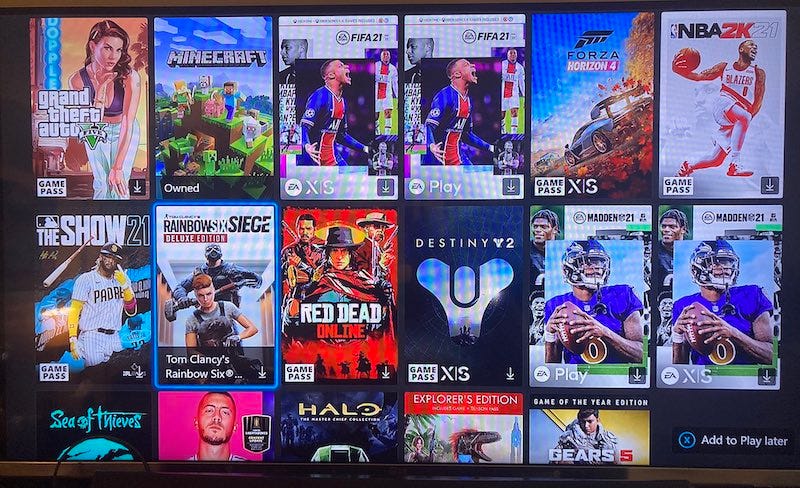
Many of you know I’m a little allergic to large trend thinkpieces. I claim they are often tossed-off ‘sent from my iPhone’ fripperies or Kent Brockman-esque ego extensions. But I doth protest too much, and we should bring together multiple data points around the monetization shifts happening in the PC/console space.
As a starting point: the above picture is a snapshot from my TV of the current ‘top games’ for Xbox Game Pass Ultimate, which I Tweeted alongside the comment that “‘game also has IAP [or DLC]’ seems to be recurring theme here. (Base game in Game Pass, then the upsell...)”
It reminded me that there are three major and interacting disruptors in the space that I think everyone - all of you - need to pay attention to:
Games As A Service underpinned titles
In-game purchase/DLC centric paid games
Catalog subscription-funded (or part subscription-funded) games
For a while, we’ve been talking about these individual trends as if they are discrete things. But the big publishers are noticing that they can interact meaningfully and create a network effect.
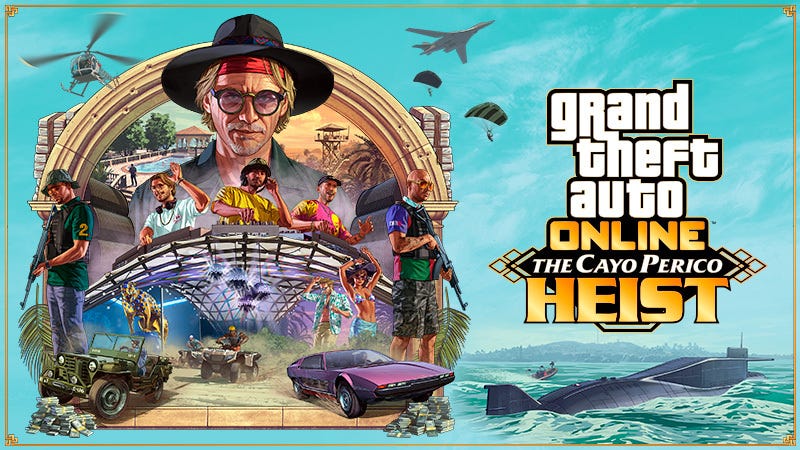
In the case of one of the most famous game franchises in the world, Grand Theft Auto, it works like this:
Take-Two/Rockstar creates Grand Theft Auto V, and adds the GTA Online persistent mode to it after release - originally back in 2013.
T2 concentrates on Games As A Service-style updates for GTA Online to retain players, and constantly create new and interesting things for players to do as part of an online world.
Since more of GTA’s revenue is being made via in-game purchases, it can now afford to do things that look extremely generous & boost playerbase. For example: include GTA V (and Red Dead Redemption Online) in Xbox Game Pass and even give GTA V away on the Epic Games Store. (Both situations involved the platform-holders paying T2, but the user acquisition for the IAP is a lot of the reason for T2 to permit this.)
The net result? Nearly $1 billion in GTA-related spend for the latest fiscal year for Take-Two. That’d be the equivalent of selling 33 million copies of the regular game at $30 USD (!)
What’s interesting about this is that the game has robust ‘pay for base game’ content - as opposed to just being F2P. So this allows GTA V to be a subscription perk for Xbox Game Pass, while still being a Games As A Service title and having IAP. It’s a trends bingo!
And it means that the top end of Game Pass is being crowded with these high-budget IAP-ish titles that are a big draw for regular players. Xbox’s Sarah Bond recently commented: “When you subscribe to a channel that enables you to watch a video, like Netflix… that’s kind of the end of the monetization cycle that you have with that piece of content. In gaming it’s the opposite: there are items that you can buy in the game, there are extensions you can buy, there’s a next franchise you can purchase, there are other genres that you can leap to.”
This is undoubtedly why Electronic Arts was willing to add EA Play to Xbox/PC Game Pass Ultimate. The company gets paid well by Microsoft, but also did the math on the (for example) FIFA Ultimate Team upside from having it available to more players. And it made complete sense. (And let’s not forget that Microsoft’s own Minecraft has a paid base game, but myriad upsell opportunities for cool levels/skins IAP are all over its interface nowadays.)
I have to say that this is changing how I’m seeing subscription services. A lot of these long in-development GaaS titles have latent interest to regular PC/console gamers. For example, Destiny 2 has a free base version, but its later expansion DLCs are normally paid - but not for Game Pass players. Getting access to content like this is a major driver of new Game Pass subs.
But what do you - yes, you - do about this?
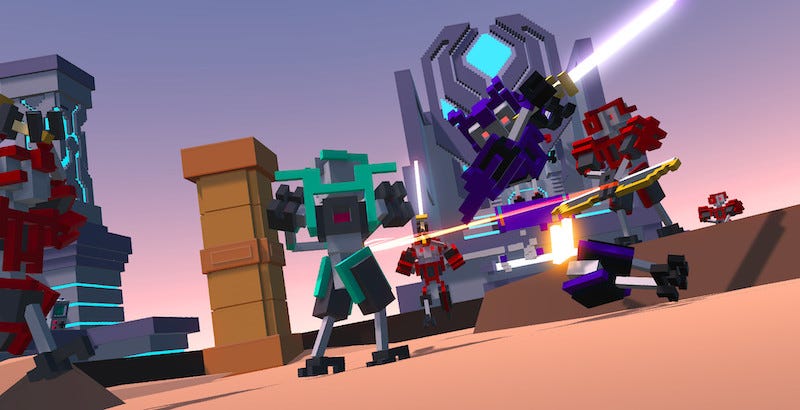
And where does this leave small/medium-sized developers who aren’t able to - or interested in - deploying these tactics? Well, frankly, I think everyone should be considering at least one of the three above trends.
Youre not required - and may not be scaled - to do them all. But just making a Games As A Service-esque title with replayability & extensibility makes sense for your ‘long tail’ on sales, even if you don’t decide to do any extra monetization. You can build your way to success with a ‘pay once’ title - see games like Clone Drone In The Danger Zone (pictured, above).
And then, getting your most committed players to pay more money over time? Many core PC/console players can get grumpy about in-game purchases, but this negative sentiment can hide a core of players who are just fine with paying, if positioned right. The concept that players who’ve put 200 hours into your game could pay more than the base amount shouldn’t be controversial.
The safest way to do this is via DLC, as I’ve argued in the past. Cities: Skylines, which has a free weekend on Steam that’s just ending, has a $242 USD DLC bundle pack, wow. But looking at alternatives like cosmetic ‘skins’ seems doable even for more casual games - if you can get a critical mass and the right kind of player base.
And if you’re making a really well-constructed game with a decent sized budget, designed to be played through once, with no major post-release extensions? (Which is fine - I like those games!) Well, I’m starting to think that a game publisher is actually the best place for you, if you’re not a minimal-$ bootstrap.
The reason? You can’t hedge your game’s budget against other games, since you can personally only make one at once. And there’s a lot of money flowing into publishers right now - both via public markets and via private investment.
The idea is that one ‘smash hit’ game can cover the development budgets of a lot of other games, and it allows indie publishers to keep being aggressive - see titles like Curve’s Human: Fall Flat.
If you’re in this space, just think of your publisher as more of a financial arbiter and a picker of games likely to succeed, than ‘the sole entity who makes your game a hit’. And be aware that only a minority of games hit big. (But if the pub is good and wants to publish your game, that’s a good sign. And publishers can help take your game over the top with smart marketing and platform relationships.)
Going full circle to end this piece, Take-Two is actually reinvesting some of that GTA money in traditional ‘spread your bets on some small/medium titles’ indie publishing, via Private Division. (Of course, some are definitely GaaS-y and/or have DLC!) And interestingly, you can see the company’s entire pipeline via their recent fiscal result slides:
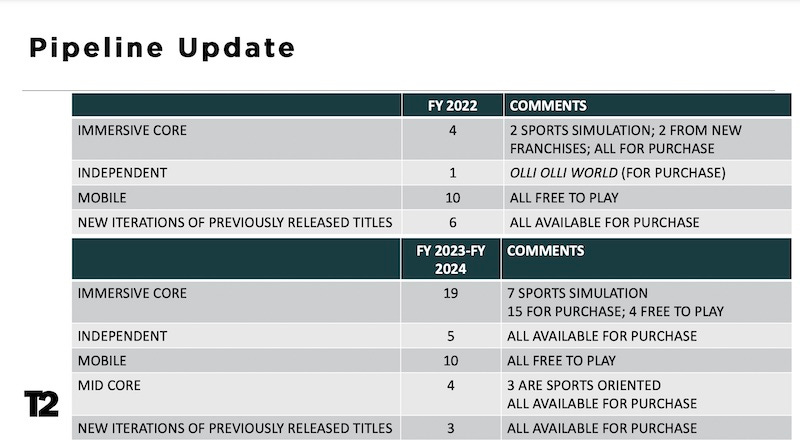
Looking at the full picture, as illuminated by the above game slate: the biggest publishers in this space are pivoting further to DLC/IAP and other recurring revenue. We think Game Pass-like services are an upsell opportunity for GaaS-y titles and a useful, but not gamechanging discovery and funding tool for ‘regular’ single-purchase games.
And in fact, the rise of subscription platforms may degrade monetization opportunities for certain types of games over time. Unfortunately, these will likely be single-purchase premium games made by the ‘little guy’ who can’t get on the service.
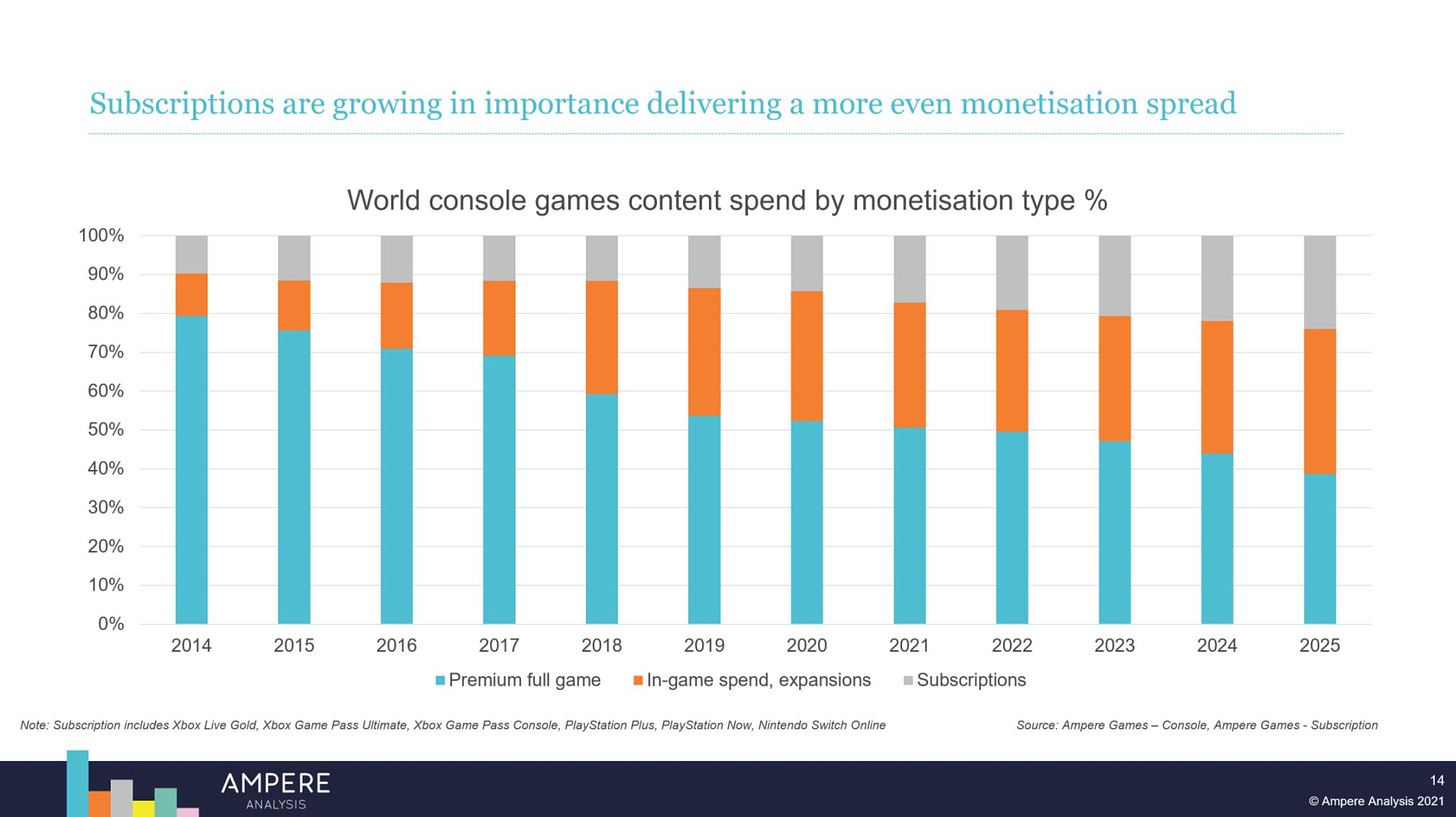
If you twin the above chart estimates with the fact Ampere’s Piers Harding-Rolls is predicting fairly flat overall console monetization over the next 5 years, I’ll ask again - how are you futureproofing your business in the light of these trends?
The game discovery news round-up..
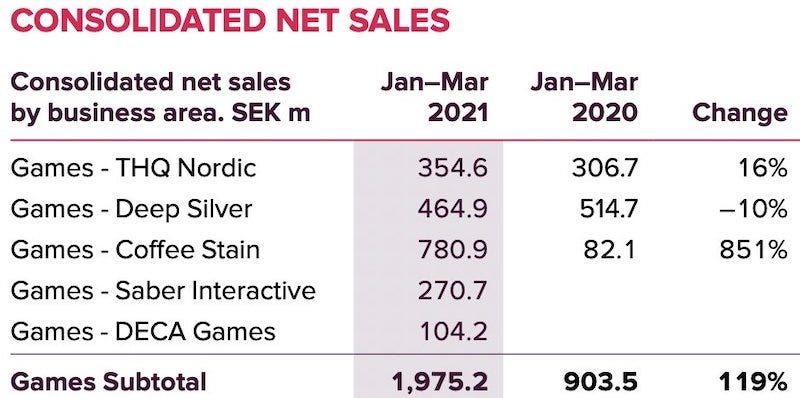
As we bring this particular newsletter to its conclusion, I’d just like to say - wow, the video game market is dynamic and interesting right now. It’s kind of a mess, to be honest, but it’s an interesting mess.
So I hope we’re helping to keep you on top of whatever the heck is going on, as we all have to navigate it. Finally for this edition, here’s some more factoids to consume, to help you understand it just a bit better:
(REMINDER: if you’re not a GameDiscoverCo Plus subscriber yet, you’re missing our weekly Plus newsletter analyzing PC and console game trends - here’s Friday’s, on Biomutant & more - a member Discord, & full Steam Hype back-end data. And you’ll help to support this free newsletter! Make it so.)

































